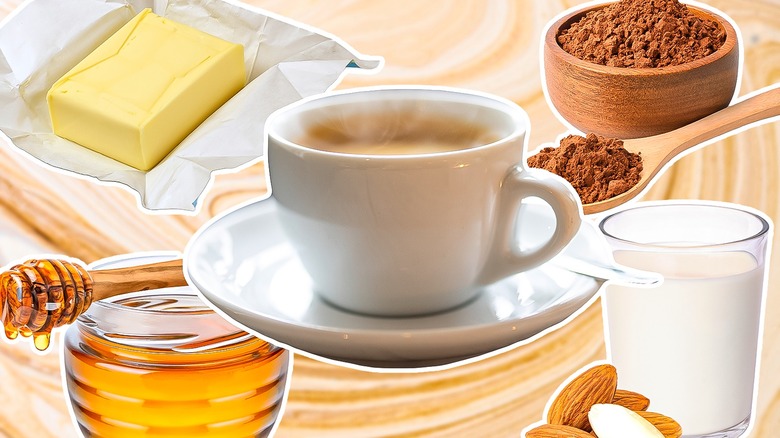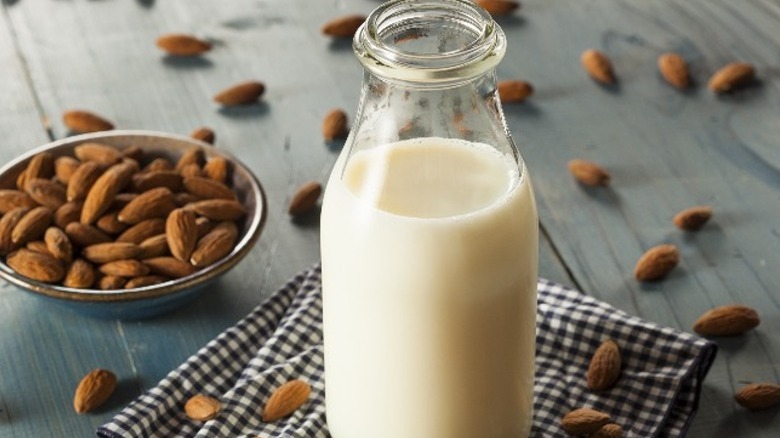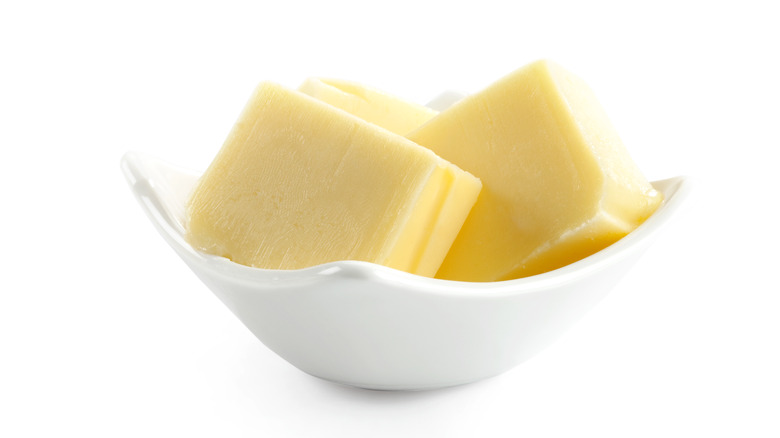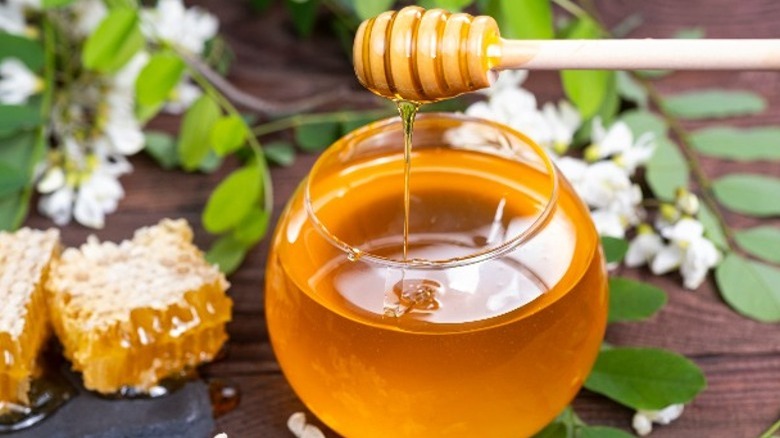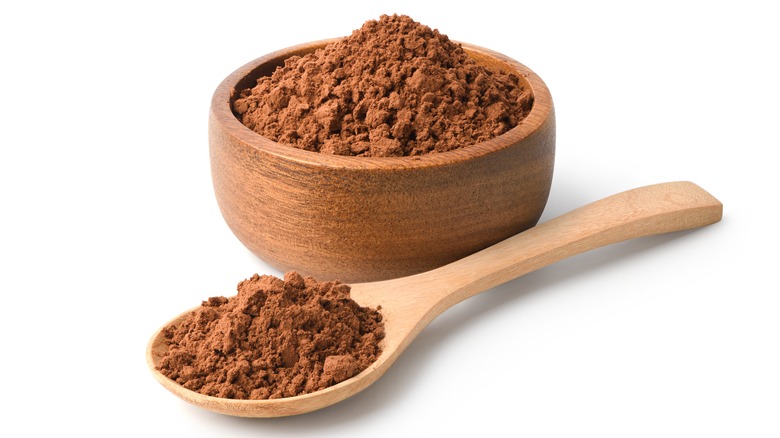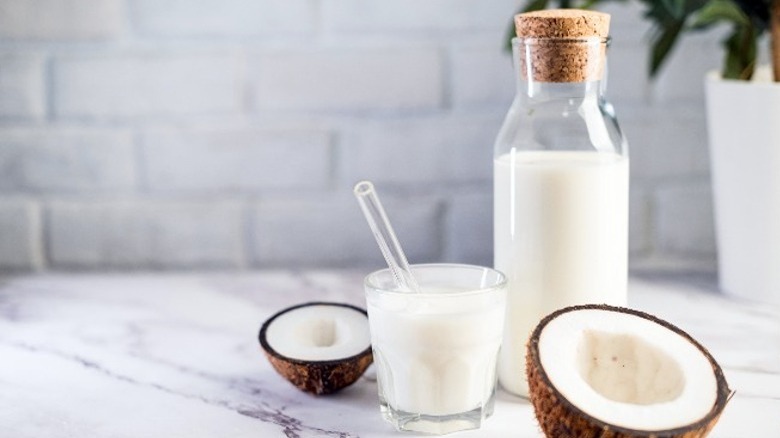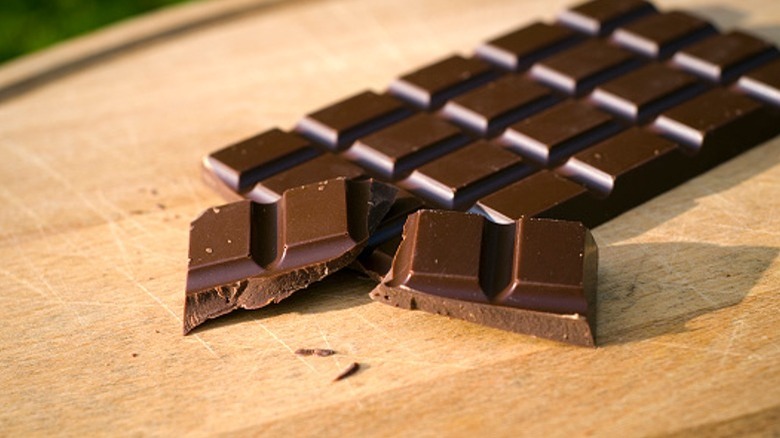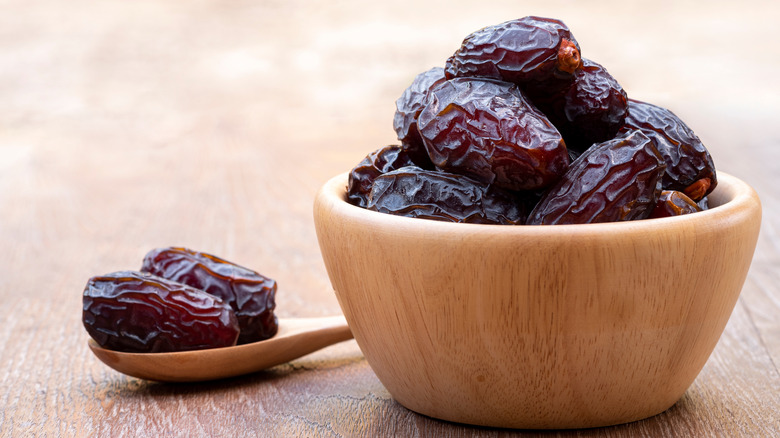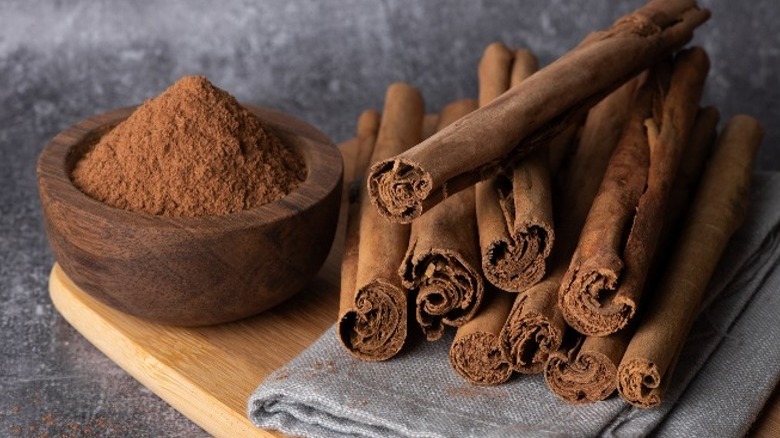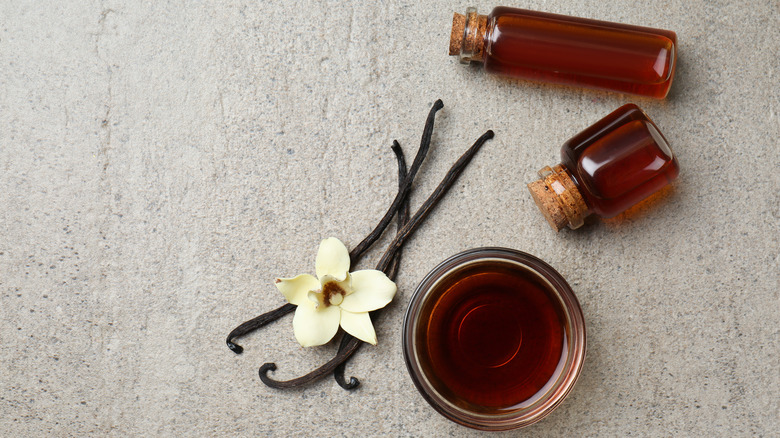9 Healthy Ways To Sweeten Your Coffee Without Sugar
If you are like many others, you have to start your day with a cup of coffee. However, this may not be the healthiest habit, unless you drink your morning cup of coffee black. Did you know that each teaspoon of granulated sugar contains 16 calories? If you prefer your coffee a little sweeter and tend to add closer to 2 teaspoons, that means you're consuming around 32 calories from sugar alone — and that's assuming you only drink one cup of coffee.
To make matters worse, sugar has a lot of fructose. Diets higher in fructose have been linked to diabetes, obesity, and other diseases, according to Healthline. Just because you should put less sugar in your coffee, it doesn't mean you must train yourself to drink it black. Fortunately, several other alternatives offer a healthier way to sweeten coffee. Keep reading to discover a few options to try.
1. Almond milk
Almond milk has a slightly sweet flavor that can be useful as a sugar replacement in your coffee. Because it is made from almonds, the milk also has a somewhat nutty taste, which can provide something new and exciting in your morning beverage.
While you can also purchase sweetened almond milk, unsweetened options are healthier. These beverages are more natural, as they are typically made with simply water, almonds, some vitamins and minerals, a little salt, and a stabilizer to help keep the milk from going bad quickly.
This option offers several other benefits. Almond milk can provide your body with important vitamins and minerals, according to WebMD. Almond milk may contain vitamin E, which is beneficial for your immune system, and magnesium, which can help control blood sugar and regulate blood pressure. In addition to these health benefits, almond milk is dairy-free, which makes it suitable for those following a vegan diet.
2. Butter
Adding butter to your coffee is an option you might want to consider, especially if you are following a keto diet– in which participants consume high amounts of fat, medium amounts of protein, and low amounts of carbohydrates. Because of its higher fat content, butter coffee is suitable for the fat-fueled keto diet. This fat content can also help you feel satisfied for longer periods, which can help with weight loss, according to WebMD.
If you want to enjoy some butter coffee, you can simply add 1 to 2 tablespoons of butter to your coffee. If you want to make a similar recipe called bulletproof coffee — which is popular among followers of the Keto diet — you will also need to add between 1 and 2 tablespoons of medium-chain triglyceride oil (MCT oil). This ingredient further aids in the feeling of fullness provided by butter coffee, as well as provides additional benefits. If you don't have MCT oil, Healthline recommends using coconut oil as a substitute.
3. Honey
Honey is very sweet and flavorful, so it can be a great coffee flavoring agent. There are several different types of honey, such as clover, raw, manuka, and buckwheat. Each honey type has a unique taste, which will in turn impact the way your coffee tastes. You can experiment with different honey varieties to see which you like best.
Like sugar, honey is also made up of glucose and fructose, according to the University of Arizona. There are technically more calories in each tablespoon of honey compared to a tablespoon of sugar (64 calories compared to 45 calories). However, honey is denser than sugar, giving it a sweeter taste. Because of this, you often need to use less of it to sweeten your coffee, which can save you a few calories.
Honey can offer a few additional health benefits, as well, according to Healthline. It can be soothing for sore throats and has antimicrobial properties, which help kill germs. If you choose local raw honey, which is unpasteurized, it may also help provide some relief against allergy symptoms.
4. Cocoa powder
Cocoa powder can be a little bitter, so don't expect it to make your coffee overly decadent. However, it will offer a new flavor to your beverage. Be sure to mix cocoa powder into coffee while the liquid is still hot. This will help it to dissolve better. However, don't be worried if some of it does not fully incorporate into the liquid. Some of the components of cocoa powder are not soluble.
This ingredient will still add calories to your cup of coffee, but it offers some benefits over granulated sugar, according to WebMD. First, it's a better source of various vitamins and nutrients than sugar. Cocoa powder contains nutrients such as vitamin B6, thiamine, niacin, riboflavin, potassium, and calcium, reports Souper Sage. These nutrients may aid in improving your cognitive health and memory, support a healthy immune system, and help your muscles and nervous system function properly.
5. Coconut milk
If you're looking for a dairy-free coffee sweetener, you might want to try coconut milk. Compared to cow's milk, unsweetened coconut milk has a slightly sweeter flavor. There are also sweetened coconut milks, but it's best to avoid these, as they'll also add more sugar and calories. When you warm up coconut milk, such as over the stovetop, it may also become thick and creamy. This texture can be useful in coffee drinks such as lattes or cappuccinos.
However, there are a few considerations to keep in mind. First, coconut milk is a high-calorie beverage. As such, you'll want to use it sparingly. According to Healthline, each cup has 552 calories, so if you want to try it with your coffee, add just a splash to achieve the taste you're after.
Coconut milk is also high in medium-chain triglycerides — which is a good thing. While more research is still needed, initial findings suggest that medium-chain triglycerides may support a healthy metabolism. A study published in the National Library of Medicine also suggests that coconut milk may be good for people with diabetes, but it's always a good idea to consult with your physician before making any big dietary changes.
6. Dark chocolate
There are several health benefits of consuming dark chocolate, especially over milk or white chocolate. Compared to these varieties, the sugar and fat content of dark chocolate is much lower, according to Cleveland Clinic. Beyond this, there are also flavonoids and antioxidants found in dark chocolate. Flavonoids can help facilitate blood flow, which can result in lower blood pressure, improved cognition, and better overall health. Dark chocolate is also a good source of several beneficial minerals. A few of these include zinc, which supports a healthy immune system, magnesium, which can help you get better sleep, and phosphorus, which is important for bone and teeth health.
While darker chocolates are more nutritious, they are also more bitter. You might find that a dark chocolate with around 70% cacao is more effective at sweetening your coffee than something with 80% cacao. You'll also want to play around with adding different amounts of dark chocolate to your coffee to find the right ratio that tastes best for you. The more you add, the more calories you'll also be adding, so stay conscious of that as well.
7. Dates
To use dates to sweeten your coffee, you'll need to make a paste by soaking the dates in water, draining them, and then blending them with a few tablespoons of water. You'll be able to mix this paste into your hot beverage, which obviously wouldn't be possible when the date is still whole.
Dates are a healthier alternative than standard granulated sugar, according to Medical News Today. While dates have a high sugar content, this sugar is natural. Additionally, they are high in fiber. Each 1/4 cup of dates contains roughly 12% of the daily recommended fiber intake amount. Dates are also a good source of potassium, which helps support heart health and muscle development. They also contain polyphenols, which can help to protect against inflammation. Despite their sweeter taste, one study published by the National Library of Medicine indicates that dates do not significantly spike a person's blood sugar, including in individuals with diabetes.
8. Cinnamon
Cinnamon is another way to sweeten your coffee without sugar. The spice has a vaguely sweet flavor. When added to black coffee, this quality helps to dull the bitterness of your beverage. Additionally, cinnamon's spiced flavor is distinctly recognizable. It is used in many iconic recipes, like apple pie, or seasonal drinks, like the pumpkin spice latte. Because of this, adding a dash of cinnamon might give your coffee a nostalgic or festive taste. Start with just a small sprinkle and slowly add more, until you find an amount that suits your preferences.
Using cinnamon is also a healthier choice than using sugar. This ingredient has been linked with lower cholesterol and blood glucose levels in individuals with diabetes, according to a study published in Diabetes Care. Adding more cinnamon to your diet may also help to give your metabolism a boost, improve your complexion, and decrease inflammation, explains WebMD.
9. Vanilla extract
If you like vanilla lattes, then using vanilla extract may be the perfect way for you to transform your next cup of coffee without sugar. Coffee pairs beautifully with vanilla, as the extract's sweet and fragrant qualities help to cancel out some of the beverage's bitterness. Each tablespoon of vanilla extract has 37 calories, according to the University of Rochester. However, you can use far less than this to sweeten your cup of coffee.
Vanilla extract also offers various health benefits. For one, its aromatic properties are said to have a calming effect on those who smell it, according to WebMD. Additionally, using vanilla extract instead of sugar can be beneficial to your heart health. This is because vanilla extract has fewer carbohydrates and calories. If you decide to try this, be sure to use pure vanilla extract rather than imitation vanilla. The latter may not contain the same nutritional benefits.
